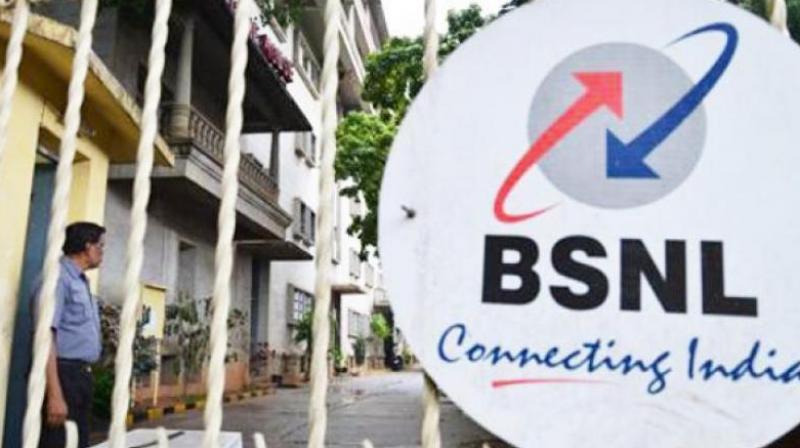BSNL reviews outsourced functions to save cost; faces Rs 800 cr revenue-expense gap

New Delhi: Cash-strapped BSNL has started an exercise to 'streamline' outsourced functions for saving up to Rs 200 crore annually, and also hopes to rationalise power bills to derive 15 per cent cost savings, a top official said on Tuesday.
BSNL Chairman and Managing Director PK Purwar told PTI that the public sector undertaking faces a gap of about Rs 800 crore between its monthly revenue and expenses (operational expenditure and wages), so "challenges will remain".
Bharat Sanchar Nigam Ltd (BSNL) has been in the grip of severe liquidity crunch, and recently delayed payment of employees wages for the second time this year. BSNL on Monday said it has now released July salaries of employees.
Purwar said that payments for July salary were supported from internal accruals, in this case revenue generated from operations, and the company did not seek financial assistance from the telecom department for settlement of wages.
"We will review our operational expenses where ever possible, and take steps to reduce it. As part of this, we are reviewing the functions that are currently outsourced to see if they can be streamlined or if some of that work can be done in-house," he said.
Purwar said the firm expects to derive cost saving of Rs 100-200 crore annually from this exercise, and assured that while the aim is to maximise output on existing resources, there will be no compromise on service quality.
Outsourced functions in BSNL ranges from optical fibre cable maintenance work to cable repair work, he added.
Similarly, there is a scope to reduce power expenses incurred at telephone exchanges, and such bills can be rationalised through minor tweaks in infrastructure, he said.
"Power is another area where a lot of work can be done by us...we will aim to derive power savings of about 15 per cent over a period of time," Purwar said.
BSNL as well as Mahanagar Telephone Nigam Ltd (MTNL) had delayed payment of salaries for February until mid-March due to a financial crisis. BSNL had then said that it used internal accruals to clear the pending wages.
The telecom department is preparing a rescue plan for the two companies in the form of a revival package that entails components like voluntary retirement scheme, asset monetisation, and allocation of 4G spectrum.
The department is also "working on" a proposal for merger of cash-strapped PSUs as part of efforts to revive the ailing state-owned telecom firms.
BSNL's loss is estimated to be around Rs 14,000 crore with a decline in revenue to Rs 19,308 crore during 2018-19. The public sector firm's provisional loss was Rs 4,859 crore in 2015-16, Rs 4,793 crore in 2016-17, Rs 7,993 crore in 2017-18 and is estimated to swell to Rs 14,202 crore in 2018-19, according to information presented in Parliament.
The number of employees of BSNL stands at 1,65,179 and the total employees' cost is a staggering 75 per cent of the total income of the company.
Private players on the other hand have very low employee cost. Airtel has 20,000 workers and the employees' cost is 2.95 per cent of the income, while Vodafone with 9,883 employees has the cost pegged at 5.59 per cent.

